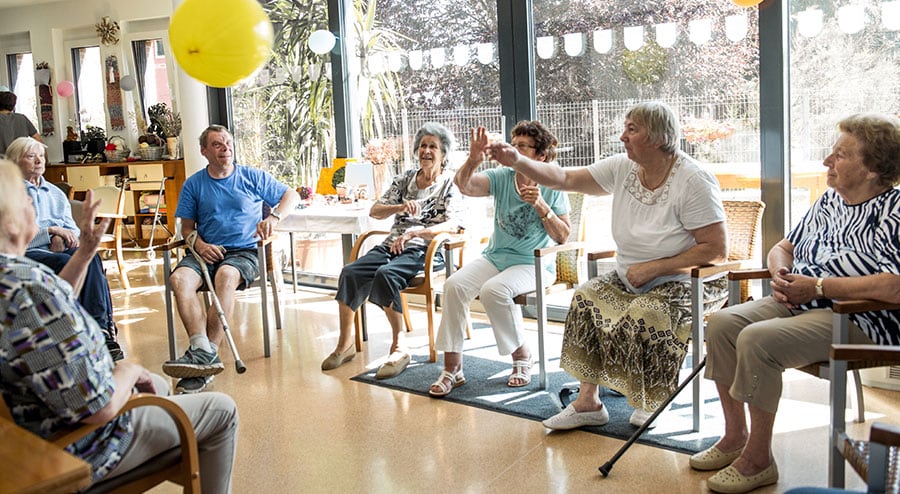The Value of a Comprehensive Program of Care in Assisted Living Setups
In assisted living setups, the implementation of an extensive program of treatment is important for attending to the diverse needs of residents. Such programs not only incorporate medical and mental services but additionally foster social involvement, which is important for boosting general health. By focusing on customized care plans and involving families at the same time, these programs can considerably improve health results and lifestyle. Nonetheless, the concern stays: what specific approaches can be utilized to ensure that these programs are successfully tailored to fulfill the distinct demands of each local?
Recognizing Comprehensive Care Programs
As helped living centers remain to develop, recognizing comprehensive care programs becomes necessary for both locals and their households. Comprehensive treatment programs are designed to deal with a wide variety of demands for individuals staying in assisted living atmospheres, making sure that each resident receives tailored assistance that mirrors their one-of-a-kind health conditions and lifestyle preferences.

Furthermore, detailed treatment programs stress sychronisation among various service providers, guaranteeing seamless interaction in between caregivers, medical workers, and relative. This incorporated strategy not only improves the quality of care yet likewise fosters an encouraging neighborhood setting. Households play an essential function in this procedure, joining care preparation and continuous discussions to make certain that the citizen's requirements are continually satisfied. Understanding these programs is essential for making notified choices regarding care alternatives and optimizing the high quality of life for homeowners in assisted living centers.
Advantages for Residents

In addition, citizens experience boosted assurance, recognizing that expert support is readily offered must they require aid. This guarantee allows them to concentrate on enjoying their day-to-day activities and keeping purposeful relationships.
Duty of Caregivers
Caretakers play an essential duty in the well-being of locals in assisted living facilities, making certain that their needs are fulfilled with concern and expertise. They function as the main point of get in touch with for residents, providing necessary assistance in everyday activities such as bathing, clothing, and medication administration. Their presence not only promotes physical health and wellness but likewise boosts emotional and social wellness by cultivating connections built on trust fund and understanding.
In enhancement to supporting daily living jobs, caretakers are important in monitoring adjustments in citizens' health and actions. They are trained to recognize refined signs of distress or decrease, making it possible for timely treatments that can protect against issues. Their knowledge of each citizen's one-of-a-kind history and choices enables them to provide tailored treatment, improving the total high quality of life.
In addition, caretakers serve as advocates for residents, communicating their requirements and preferences to other medical care specialists and family participants. This campaigning for is important in producing a holistic treatment setting that appreciates the self-respect and freedom of each individual. Ultimately, the dedication and skill of caregivers are important parts of an extensive program of treatment, underpinning the success of assisted living setups.
Customizing Care Program
While every local in assisted living has distinct demands and preferences, customizing care plans is important to providing reliable and individualized assistance. A one-size-fits-all strategy to care can forget crucial facets of individual wellness, potentially bring about suboptimal outcomes. Assisted Living. A complete evaluation of each local's wellness standing, personal history, and lifestyle choices is critical in establishing tailored care methods.
The personalization process includes cooperation amongst health care professionals, caregivers, and relative. By including input from all stakeholders, treatment strategies can deal with not just clinical requirements but additionally psychological and social variables that add to total high quality of life. Regular reviews and updates to these plans guarantee that they continue to be pertinent as citizens' conditions and choices advance with time.
Enhancing Neighborhood Interaction
Building on the foundation of personalized treatment plans, improving neighborhood interaction is a crucial facet of improving the overall experience for locals in assisted living (Memory Care). Energetic participation in community tasks promotes social connections, combats feelings of isolation, and adds to psychological health. Facilitating possibilities for citizens to participate in group activities, such as art courses, gardening, and exercise sessions, produces an inclusive environment that promotes communication and cooperation
Furthermore, incorporating homeowners into the broader area through partnerships with neighborhood companies can provide improving experiences, such as volunteering and attending social events. This not just helps locals really feel valued but likewise enhances ties with the surrounding community, enhancing their sense of belonging.
In addition, urging family members involvement in area tasks is important. Assisted Living. Household participants can offer as crucial support group, assisting to link the gap in between citizens and the area. Routine family members occasions and open online forums for conversation look at these guys foster openness and partnership, ensuring that the care environment remains receptive to the needs of all stakeholders
Conclusion
In final thought, extensive treatment programs in assisted living setups play an important role in enhancing citizens' health. The involvement of family members in treatment planning reinforces support networks, promoting a sensible and self-governing living atmosphere.
Comments on “Specialized Memory Care programs for seniors with Alzheimer’s and dementia.”